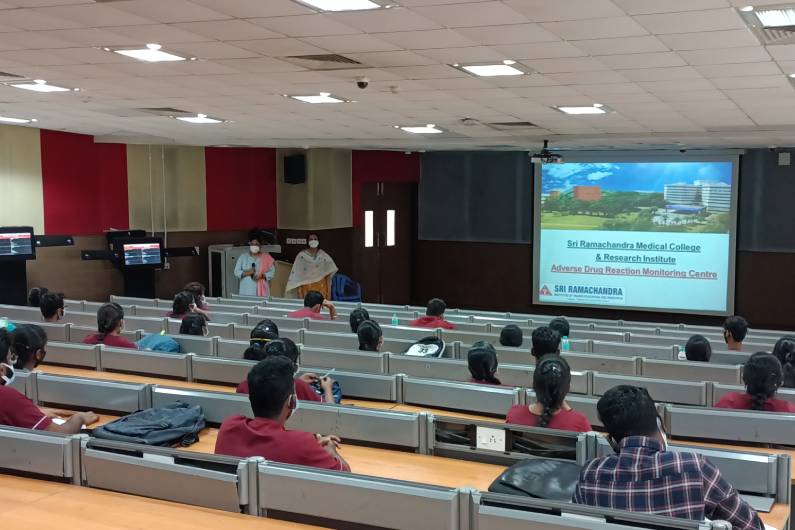Pharmacology

Thrust areas for your department
1. Teaching – Learning – Assessment
a) Integrative Teaching techniques: MBBS & Other courses
E-learning, Case based learning, Problem based learning discussions, Quizzes, Reflective writing
Project based learning, Teaching with innovative methods like mind mapping, debates, team
teaching, game based learning (connections), flash cards, animations, Artistic posters. Question
banks with must know and desirable to know questions
MD Pharmacology
Industry and clinical based training, animal handling techniques, ethics & research methodology, good clinical practice training, communication and soft skills, creative poster making, scientific and medical writing and organizational skills, analytical instrumentation (spectrophotometry)
2. Clinical Pharmacology services
The Clinical Pharmacology services offered by the department are pivotal in improving rational medication use, patient safety and health outcomes. They include the following:
- Decision Making in Policies involving medication management
- Pharmacy, Therapeutics and Antibiotic Monitoring committee
- Ensuring adherence to NABH guidelines
- Safety Monitoring of new drugs
- Auditing of IP, OP prescription
- Transcribing drug Orders
- Monitoring Medication errors
- Preparation and Dispensing of high concentrated electrolytes
- Root cause analysis & CAPA of medication errors
- Monitoring antibiotic usage
3. Pharmacovigilance & Materiovigilance
Robust Pharmacovigilance and Materiovigilance systems are functional in order to assess, detect, understand and prevent adverse effects related to drugs and devices with the final vision of monitoring patient safety and welfare. In this regard the following activities are undertaken:
- Sensitization programmes for various stakeholders and students, newsletter, drug alerts, awareness posters, videos, periodical webinars, competitions related to Pharmacovigilance viz, posters, leaflet making, video & reels and cartoon making, quizzes.
- Training for postgraduate and undergraduate students
4. Research
- Drug discovery and development
- Preclinical studies of phytochemicals, synthetic molecules, algae and drugs
- Clinical studies
- Pharmacoepidemiology and pharmacoeconomics – Observational studies
- Pharmacogenetics
- Nano pharmacology
- Drug docking, cell lines, in-vitro tissue chip, C. Elegans, zebra fish and other alternative animal models based research






